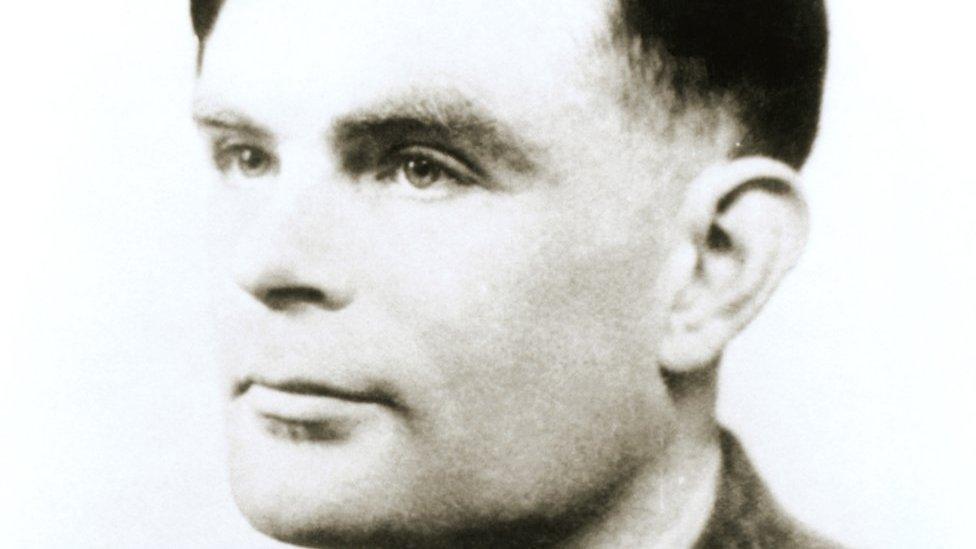Concerns over pardons for convicted NI gay men
- Published
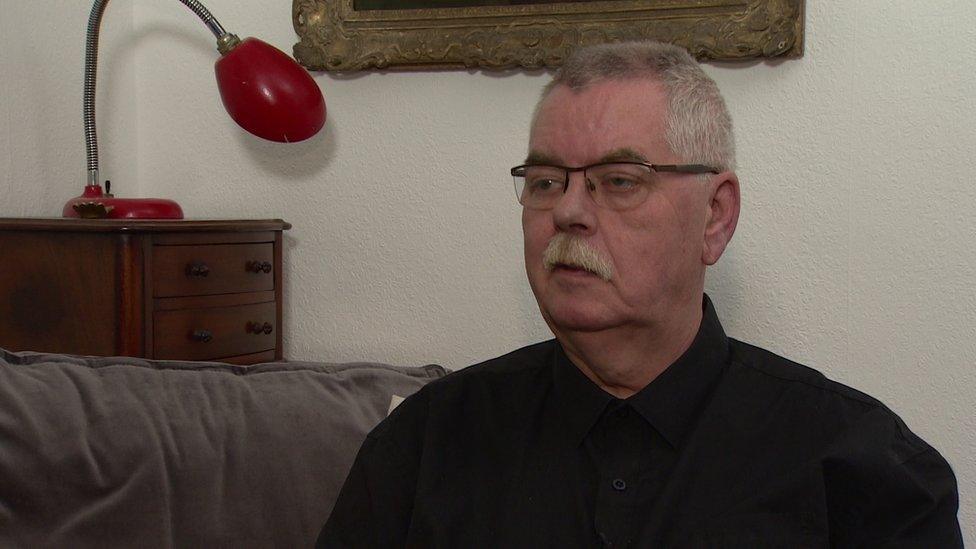
Richard Kennedy said he believes some of those who will be entitled to a pardon for abolished sex offences will not want to revisit the past
A Belfast man investigated on suspicion of having gay sex in the 1970s fears there may be a low take-up in a proposed pardon for convicted gay men.
A motion is due to go before the assembly for approval.
Richard Kennedy said he believes some of those who will be entitled to a pardon for abolished sex offences will not want to revisit the past.
But he welcomed the fact that they will have the option.
"I know four men who were convicted and who now have jobs in the caring profession and feel its just too sensitive to dig up the past, but they are pleased that at last they will have the option to clear their name and get rid of any stigma which has followed them through life," he said.
'Intimidating'
Richard was one of 22 men arrested in Belfast in 1976 and questioned about his sexual relationships with other men.
At the time, homosexual acts were illegal in Northern Ireland.
"It was very scary, very intimidating, the police weren't physically aggressive but their whole demeanour was threatening - it wasn't pleasant," he said.
"They asked me questions about my friendship, relationship and sexual activity, they were fishing for information that they could use to charge me with sexual offences.
"They were very personal questions, they were probing, and because they had my diaries the questions were difficult.
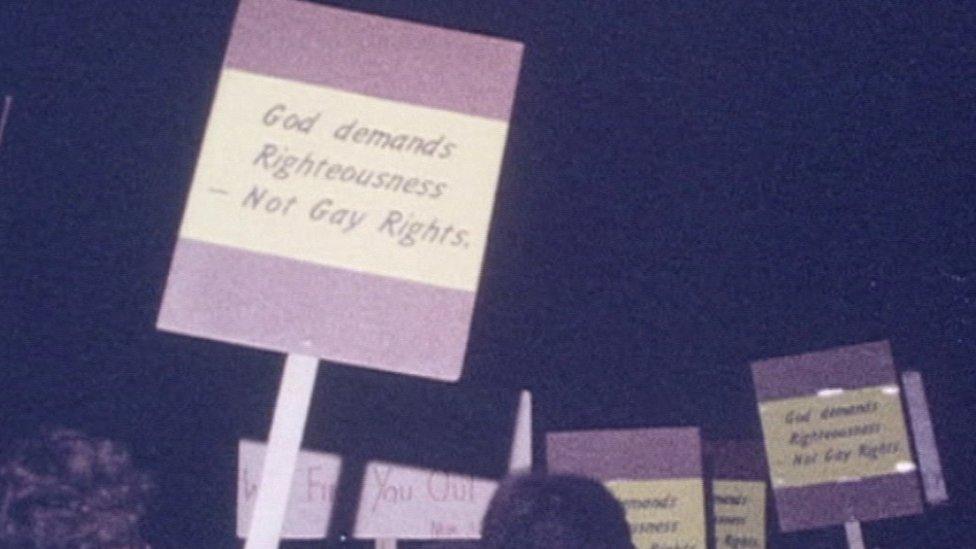
Richard said the party have "come a long way from their Save Ulster from Sodomy Campaign"
"I felt persecuted by the investigation by the RUC as they came to my house many times that year asking questions."
Richard was questioned for eight hours, and investigated for more than a year.
'Close to prosecution'
He was to be charged with gross indecency along with three other men, including the current Belfast City councillor Jeff Dudgeon but the case was dropped at the last minute.
"We got in touch with the DPP in London who overruled the local DPP, the prosecution's papers were in the out tray and they were only whisked away at the 11th hour," he said.
"So we were very close to prosecution and we would have been those people today seeking pardons had we survived, but the thought of going to jail in 1976 as an a openly gay convicted person was not a very tasty prospect."
Richard also paid tribute to the DUP for supporting the proposed pardon.
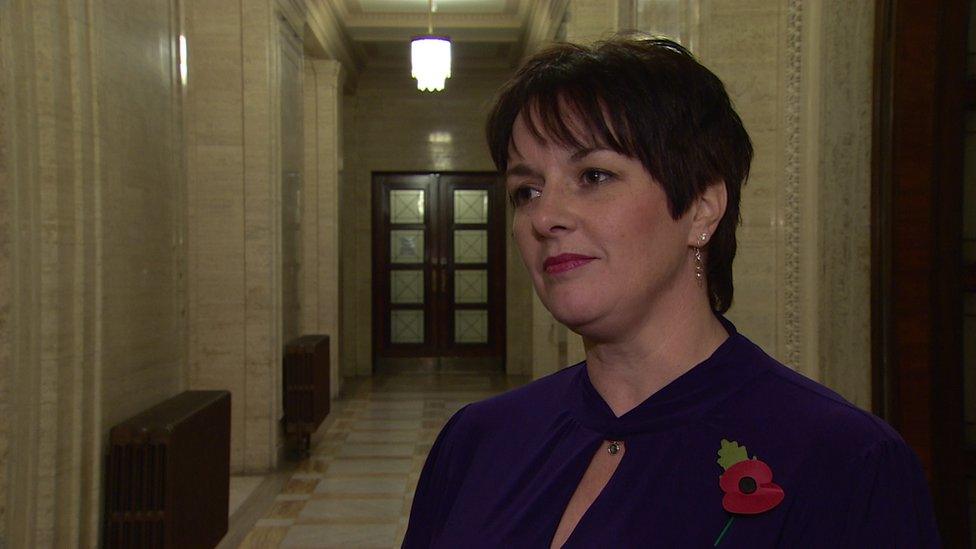
The DUP MLA Pam Cameron insisted it was a "good decision" by the party
He said the party have "come a long way from their Save Ulster from Sodomy Campaign".
"Arlene Foster is a more progressive influence on the DUP than Mr Robinson or Mr Paisley was, the problem for her is yes, there may be forces within the DUP who are looking to the future, but there is also a strong body of people who aren't looking to the future so she needs to thread carefully but again I applaud her for looking in the right direction at least," he said.
Christian values
The BBC The View programme has been told there is opposition within the party to the move.
A number of DUP politicians said they weren't consulted about the proposed pardon, which they said goes against the party's Christian values.
TUV leader Jim Allister - a former DUP MEP - said: "It is astounding that the DUP, of all parties who opposed the decriminalisation of homosexuality, now is rewriting its own history by embracing this silly notion of pardons for obsolete offences and I think it tells you everything about a DUP which has rolled over on so many of its former principals."
But DUP MLA Pam Cameron insisted the party had made a "good decision".
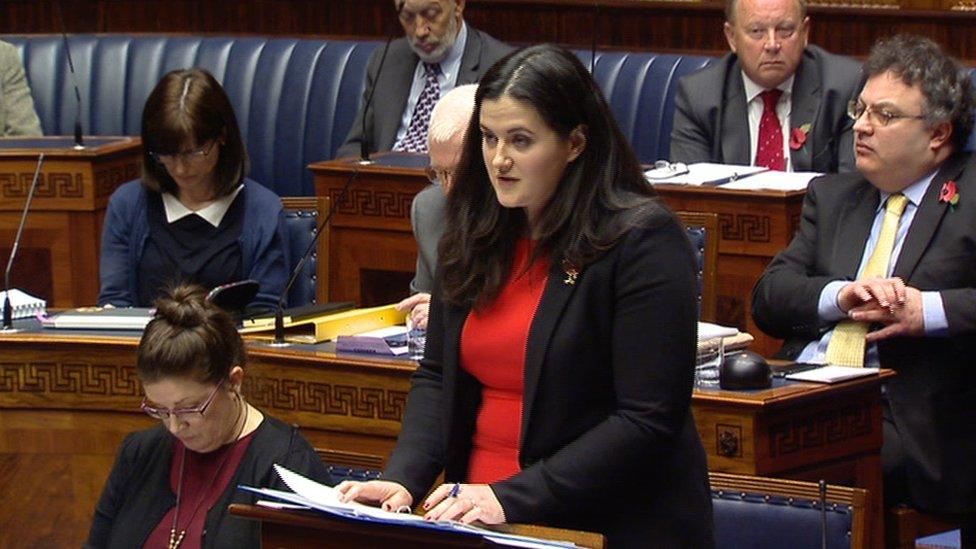
Justice Minister Claire Sugden said the pardon would be brought in "as soon as possible"
"It is something which needs to be done and we need to follow on with the legislation," she said.
"Our MPs at Westminster had supported the Turing campaign over the years and we need to see how this could be extended to Northern Ireland and we are happy with that."
Justice Minister Claire Sugden confirmed this week that a motion will go before the assembly for approval.
The move will bring Northern Ireland in line with England and Wales, where plans for automatic pardons were announced last month.
Those proposals would see men convicted of now-abolished sexual offences receive posthumous pardons.
Dubbed Turing's Law, after the World War Two code-breaker Alan Turing, the law will also allow living men convicted of such offences to apply for a pardon.
The motion in the assembly is expected to contain the same provisions and allow for pardons both posthumously as well as for living gay and bisexual men.
The View is on BBC One at 22:45 GMT on Thursday
- Published8 November 2016

- Published20 October 2016
